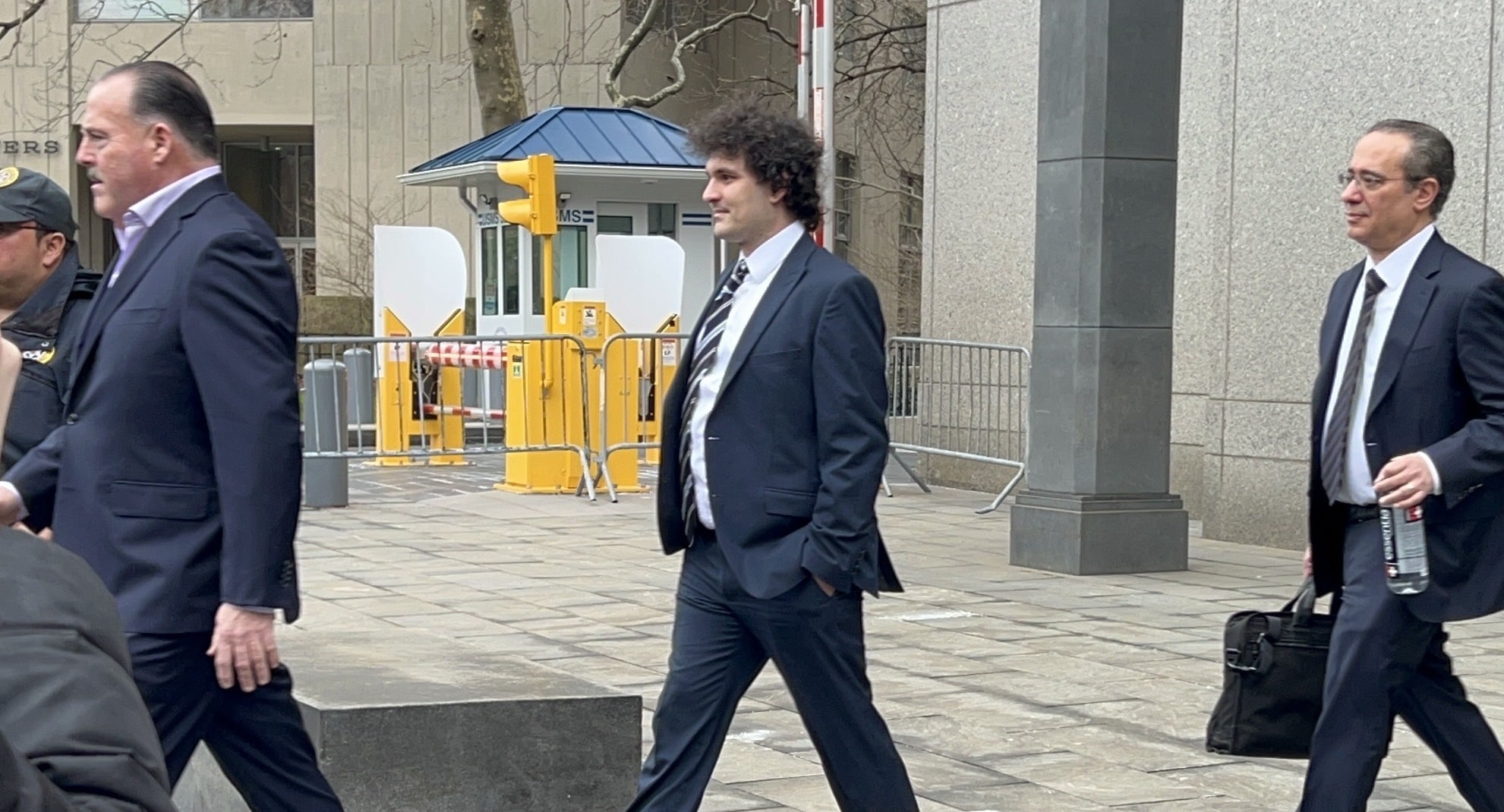NEW YORK – The U.S. Department of Justice started the criminal trial of Sam Bankman-Fried this Wednesday afternoon by declaring in its opening statement that Bankman-Fried deliberately lied his way toward “wealth, power and influence,” allegedly stealing billions of dollars from thousands of individual people.
The defense team for Bankman-Fried, on the other hand, described the former FTX CEO as a “math nerd” and a “hard worker,” who acted in good faith and took reasonable business actions during his time as FTX’s founder and CEO.
The opening statements from both sides occurred on the second day of the trial, following the finalization of the jury selection process earlier this morning. Bankman-Fried’s trial also saw testimonies from a former FTX customer and a long-time friend of the defendant.
Overall, the prosecution’s opening statement was cleaner and easier to follow, using simple words such as “lied” or “stole” repeatedly and sentences like, Bankman-Fried, “was using his company, FTX, to commit fraud on a massive scale. And the money he was spending to build his empire, it was money he was stealing from FTX’s customers.” It even referred to infamous tweets of SBF’s that he deleted as well as testimony to Congress that contradicted what prosecutors allege actually occurred at FTX.
The defense’s opening, which brought up terms like “margin loans,” “collateral” and “liquidity” was harder to follow, even for someone familiar with crypto and this case.
Chosen jurors included numerous people with professional backgrounds far from finance, such as a retired corrections officer, a train conductor, a social worker, and a nurse. The only juror with a financial background was a retired investment banker with a Stanford MBA.
However, Bankman-Fried’s attorney, Mark Cohen, also had some easier to follow moments in his opening. He called his client, “Sam,” and said the government’s portrait of him had been “almost a cartoon of a villain.” Cohen also used some simpler statements such as, “He was a math nerd who didn’t drink or party.”
The first witness called by the prosecution was Marc-Antoine Julliard, an FTX.com customer who had lost roughly $150,000 worth of cryptocurrencies and fiat money he had deposited into or purchased on FTX. He explained the due diligence he conducted before deciding to use FTX and how his research on Bankman-Fried led him to have a picture that SBF was “wanting to do good towards the industry; [and] giving access to customers, retail investors like me.” Juilliard shared with the courtroom how, on Nov. 6 and 7, the day before FTX’s insolvency became public, tweets by SBF stating that customer assets were safe, assured him so that he didn’t try to withdraw any of his funds.
The second person to testify was Adam Yedidia, who called himself a close friend of Bankman-Fried’s since their college days at MIT and who also worked at FTX as a software engineer at the time of its collapse and Alameda Research as a trader prior to that. Yedida said he had resigned immediately upon learning that Alameda, Bankman-Fried’s crypto trading firm, had used FTX customer deposits to repay Alameda’s loans. Just before the trial closed for the day, he acknowledged he had been living with nine roommates, one of whom was SBF, in a luxurious penthouse apartment in the Bahamas worth about $35 million.
The trial will resume tomorrow at 9:30 a.m. Eastern Time with the continuation of Yedidia’s testimony. The government stated that its next witnesses this week will likely include Matt Huang, co-founder and managing partner at Paradigm, and Gary Wang, former FTX CTO.
Sage Young contributed reporting.



